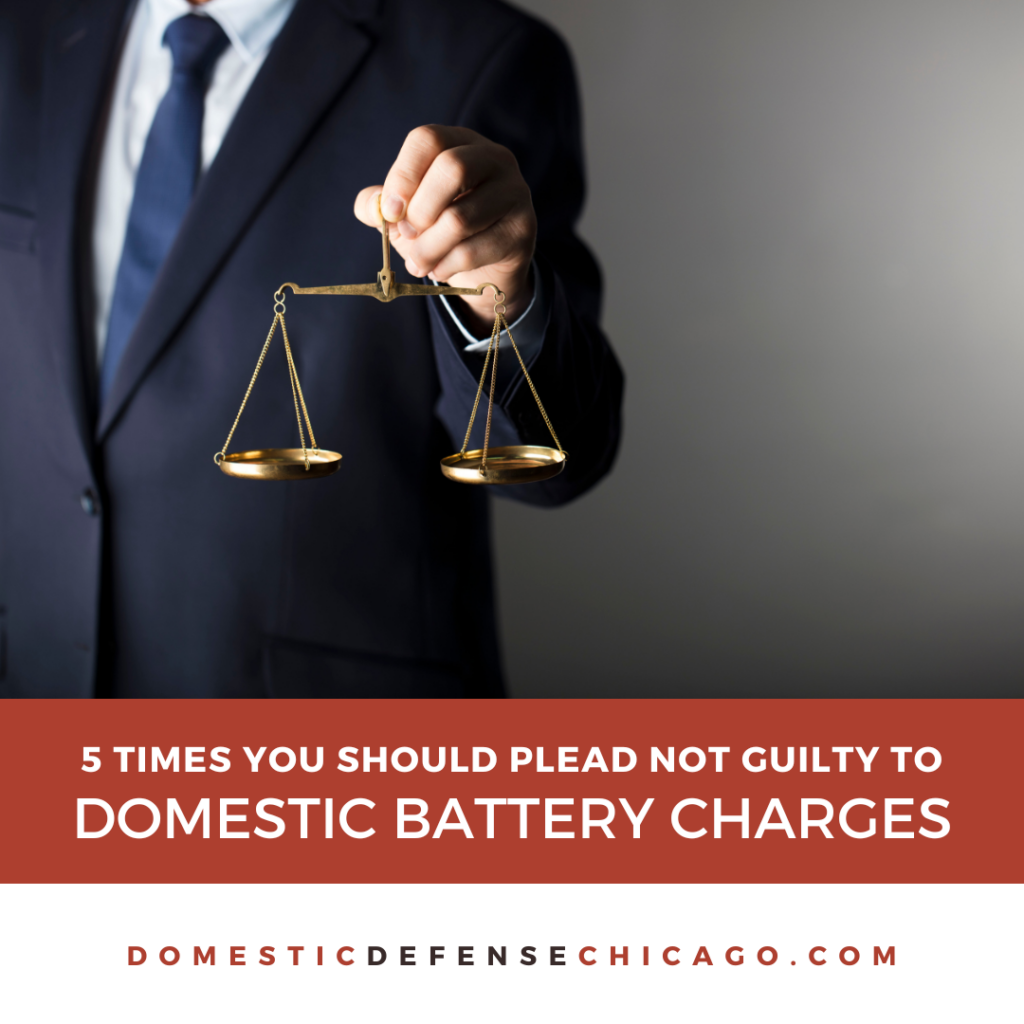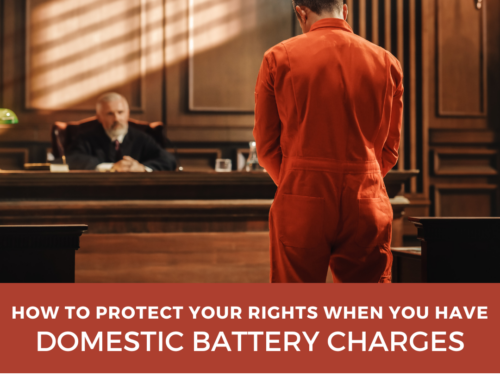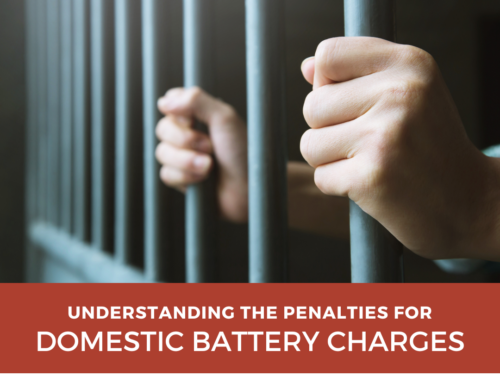Facing domestic battery charges is a serious matter, and deciding how to plead is a critical decision. It’s essential to follow your lawyer’s advice and consider the specifics of your case. Here are five situations where you might want to plead not guilty.
5 Times You Should Plead Not Guilty to Domestic Battery Charges
When facing domestic battery charges, pleading not guilty can be a strategic decision in several situations. This guide explains the following scenarios:
- When you are not guilty
- When your lawyer advises you to plead not guilty
- When the prosecution lacks evidence
- When there are inconsistencies in the accuser’s statements
- When your rights have been violated during the investigation
Here’s a closer look at each.
When You Are Not Guilty
If you did not commit the crime, you should consider pleading not guilty. Pleading not guilty allows you to challenge the charges and present evidence supporting your innocence. Your lawyer will help you gather evidence, such as witness statements, physical evidence, and electronic communications, to build a strong defense. By pleading not guilty, you assert your right to a fair trial where the prosecution must prove your guilt beyond a reasonable doubt.
Related: Domestic battery defense in Chicago
When Your Lawyer Advises You to Plead Not Guilty
Always follow your lawyer’s advice when deciding how to plead. Your lawyer has the experience and knowledge to assess the specifics of your case and determine the best strategy. They will evaluate the evidence, the credibility of witnesses, and the strengths and weaknesses of the prosecution’s case. If your lawyer advises you to plead not guilty, it is because they believe it is in your best interest based on their assessment of the situation.
Related: Can my ex drop domestic battery charges against me?
When the Prosecution Lacks Evidence
If the prosecution lacks substantial evidence to support the charges, pleading not guilty can be a wise decision. Without strong evidence, the prosecution may struggle to prove your guilt beyond a reasonable doubt. Your lawyer will scrutinize the evidence presented by the prosecution and identify any gaps or weaknesses. By pleading not guilty, you force the prosecution to meet the high burden of proof required for a conviction.
When There Are Inconsistencies in the Accuser’s Statements
Inconsistencies in the accuser’s statements can significantly weaken the prosecution’s case. If the accuser’s account of the events changes or contradicts other evidence, it may create reasonable doubt about your guilt. Your lawyer will analyze the accuser’s statements and compare them with other evidence to identify discrepancies. Pleading not guilty allows you to challenge the credibility of the accuser and highlight these inconsistencies during the trial.
Related: 3 things you MUST do if you’re falsely accused of domestic battery
When Your Rights Have Been Violated During the Investigation
If law enforcement violated your rights during the investigation, you should consider pleading not guilty. Violations of your rights can include unlawful searches and seizures, failure to provide Miranda warnings, or coerced confessions. Your lawyer will examine the procedures followed by the police and identify any violations. Pleading not guilty allows your lawyer to file motions to suppress illegally obtained evidence and protect your constitutional rights.
FAQ About Pleading Not Guilty to Domestic Battery Charges
Check out these commonly asked questions about pleading not guilty to domestic battery charges. If you don’t see your question here, please call our office and we’ll find you the answers you need.
Why Should I Follow My Lawyer’s Advice When Pleading?
Following your lawyer’s advice is crucial because they have the experience and knowledge to assess your case and determine the best strategy. They understand the legal process and can guide you through it effectively.
What Happens If the Prosecution Lacks Evidence?
If the prosecution lacks evidence, they may struggle to prove your guilt beyond a reasonable doubt. Pleading not guilty forces the prosecution to present a strong case, and your lawyer can challenge any weak or insufficient evidence.
Related: Does domestic battery drop off your criminal record?
How Can Inconsistencies in the Accuser’s Statements Help My Defense?
Inconsistencies in the accuser’s statements can create reasonable doubt about your guilt. Your lawyer will highlight these discrepancies during the trial to challenge the credibility of the accuser and weaken the prosecution’s case.
What Should I Do If My Rights Were Violated During the Investigation?
If your rights were violated during the investigation, inform your lawyer immediately. They can file motions to suppress illegally obtained evidence and protect your constitutional rights, which can strengthen your defense.
Related: ILDVA
Can Pleading Not Guilty Lead to a Better Outcome?
Pleading not guilty allows you to challenge the charges and present a defense. By forcing the prosecution to prove your guilt beyond a reasonable doubt, you increase your chances of a favorable outcome, especially if there are weaknesses in the prosecution’s case.
Do You Need to Talk to an Attorney About Domestic Battery Defense?
If you need to talk to a domestic battery defense attorney in Illinois, we’re here to help. Call us at 847-920-4540 now – we’ll be happy to give you a free consultation and talk to you about your options.







Leave A Comment
You must be logged in to post a comment.